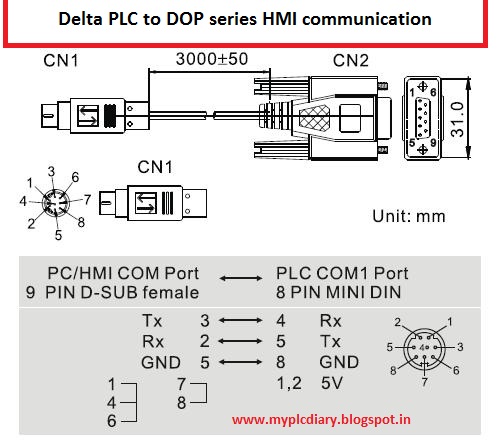Ad Code
Random Posts
3/random/post-list
What is a profibus communication?
Karthick N
08:53:00
PROFIBUS
PROFIBUS or Process Field Bus was introduced in 1989 and it is sometimes confused with PROFINET. It links plant automation modules with the process control. PROFIBUS uses a multi drop single cable to connect the devices. This method is cost effective especially for larger sites when compared to old methods. Its installation cost is low and it is easy to find faults as well because it is a single cable.
Types of PROFIBUS
Types of PROFIBUS
There are two types or versions of PROFIBUS commonly known as
1. PROFIBUS DP
2. PROFIBUS PA
2. PROFIBUS PA
Here is a brief introduction to both of these types.
PROFIBUS DP
It runs over two core screened cable that is violet sheathed and its speed varies from 9.6Kbps to 12Mbps. A particular speed can be chosen for a network to give enough time for communication with all the devices present in the network. If systems change slowly then lower communication speed is suitable and if the systems change quickly then effective communication will happen through faster speed. The RS485 balanced transmission that is used in PROFIBUS DP only allows 32 devices to be connected at once but more devices can be connected and network can be expanded with the use of hubs or repeaters.
It runs over two core screened cable that is violet sheathed and its speed varies from 9.6Kbps to 12Mbps. A particular speed can be chosen for a network to give enough time for communication with all the devices present in the network. If systems change slowly then lower communication speed is suitable and if the systems change quickly then effective communication will happen through faster speed. The RS485 balanced transmission that is used in PROFIBUS DP only allows 32 devices to be connected at once but more devices can be connected and network can be expanded with the use of hubs or repeaters.
PROFIBUS PA
It is slower than PROFIBUS DP and runs at fixed speed of 31.2Kbps via blue sheathed two core screened cable. The communication may be initiated to minimise the risk of explosion or for the systems that intrinsically need safe equipment. The message formats in PROFIBUS PA are identical to PROFIBUS DP.
It is slower than PROFIBUS DP and runs at fixed speed of 31.2Kbps via blue sheathed two core screened cable. The communication may be initiated to minimise the risk of explosion or for the systems that intrinsically need safe equipment. The message formats in PROFIBUS PA are identical to PROFIBUS DP.
Note: PROFIBUS DP and PROFIBUS PA should not be confused with ProfiNet. ProfiNet is an Ethernet communication standard and it is used for process control and process measurement. It is basically used to link computer systems in an office or a network.
Ratings:
Platform:
WindowsRandom Posts
3/random/post-list
Recent in War
3/War/post-list
Popular Posts
Footer Menu Widget
Created By SoraTemplates | Distributed By e aadhar card








0 Comments